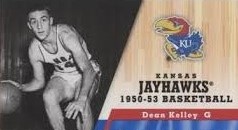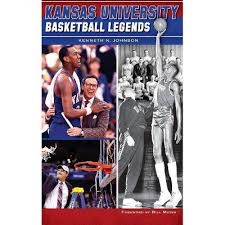The NBA Finals date back to 1947 (when they were known as the Basketball Association of America Finals) and the very 1st NCAA tourney was held in 1939. Olympic basketball competition is even older: it debuted as a demonstration event in 1904 and the men’s version became a medal sport in 1936, with the women finally getting their chance to go for the gold in 1976. The United States has dominated Olympic basketball competition from the start: the men have won 15 gold medals in the 18 tournaments they have participated in during the past 84 years, while the women have won 8 gold medals in the 10 tournaments in which they have competed during the past 44 years. Those of you who were looking forward to the 2020 Olympics opening ceremonies in Tokyo on July 24, 2020 will have to wait an extra 364 days, as the coronavirus caused a postponement until July 23, 2021. Due to the absence of college basketball since mid-March, HoopsHD’s Jon Teitel decided to fill the void by trying to interview as many prior Olympic players/coaches as possible so that you have something to read this summer while not watching the Summer Games. We continue our coverage by chatting with Dr. Kenn Johnson, KU alum and author of multiple books about KU basketball, about Dean Kelley winning an NCAA title and a gold medal in 1952.
Dean was born/raised in McCune: what made him choose Kansas for college? During his senior year in 1949 Kelley led McCune to a runner-up finish in the state basketball tournament, catching the eye of KU coach Phog Allen. The opportunity to play for “The Father of Basketball Coaching” was an offer that no Kansas high schooler could turn down.
He was 5’11”: did he see his size as an advantage or a disadvantage on the court? Although undersized, his quickness/ability/knowledge of the game gave him an edge over almost all of his opponents. Thus, his size did not keep him from being offered a scholarship at KU, nor from being selected by the Pistons in the 1953 NBA draft.
He played for Hall of Fame coach Phog Allen: what kind of relationship did they have? Kelley was a tenacious defender, which definitely endeared him to Coach Allen, who made him a varsity starter for three years at KU.
In the 1952 NCAA title game he scored 7 PTS in a win over St. John’s and in the 1953 NCAA title game he scored 8 PTS in a 1-PT loss to Indiana: what did it mean to him to win a title, and what did it mean to him to lose a title? Of course winning the national title in 1952 meant a lot in and of itself, but it also gave him the opportunity to play and win in the Olympics, which is every player’s dream. The 1-point loss in 1953 to Indiana was most disappointing.
He became the 1st Jayhawk to ever earn multiple NCAA All-Tournament selections: how was he able to keep playing his best when it mattered the most? He just had that “winning” attitude: not only at McCune and KU but also throughout his professional career where he led the USA to gold medals in the 1952 Olympics as well as the 1955 Pan American Games. He also helped the Peoria Caterpillars win the 1958 AAU championship.
He played for team USA at the 1952 Olympics: what did it mean to him to represent his country, and what did it mean to him to win a gold medal? At age 20 he was the youngest member selected to represent the US: what an honor! Given his age and his service as a valuable piece in claiming the gold medal, he was supremely proud of his accomplishment.
In the spring of 1953 he was drafted 56th overall by Fort Wayne but instead chose to join the Peoria Caterpillars where he won the 1958 AAU national championship: was it a difficult decision to turn down the NBA, and how did he like having his brother Al as 1 of his teammates? In the early 1950s the AAU was a viable alternative to the NBA, as the pay was about the same and AAU players had the advantage of obtaining business experience and connections in addition to playing basketball. Many of the best players in the country at the time chose to play for corporate-sponsored amateur teams in the National Industrial Basketball League. Dean gained valuable business knowledge/skills during his long career with the Caterpillars, and of course he relished the opportunity to play again with his brother Al.
Al won a gold medal with team USA in 1960: how happy was Dean to see Al win a gold medal 8 years after he did so himself? Dean and Al were very close, having played together at McCune, at KU, and with the Caterpillars, so of course Dean was very proud of his younger brother.
In 2017 he was inducted into the Kansas Sports Hall of Fame: where does that rank among the highlights of his career? It is memorable, particularly since his younger brother Al was inducted four years earlier: they are the only pair of brothers in the Kansas Sports Hall of Fame. Unfortunately, Dean’s induction came 20 years after his death so he did not get to enjoy it in person.
He passed away in 1996: when people look back on his career, how do you think that he should be remembered the most? Through high school, at KU, and in the pros, he was a success both on and off the court. Interestingly, he was also a member of the 1958 international team that toured the Soviet Union during the height of the Cold War.


